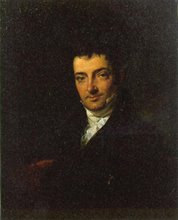Perhaps If Neocons Lied In Rhyme They'd At Least Be More Entertaining.
The Prince of Poets: Arab Poetry’s Answer to American Idol
Imagine an American TV network deciding to take the American Idol format and apply it to poetry; lining up poets to read their poems in front of temperamental judges while the nation gets out its mobile phones to vote for its favorite poet. One can be sure the show would not survive the first commercial break before the chastened executives pull the plug on it and replace it with yet another series on the Life and Times of Nicole Ritchie. Yet, that was exactly the formula for the latest TV sensation to take Arab countries by storm.
Perhaps the only thing that is as hard as translating Arab poetry to other languages is trying to explain to non-Arabs the extent of poetry’s popularity, importance and Arabs’ strong attachment to it. Whereas poetry in America has been largely reduced to a ceremonial eccentricity that survives thanks to grants and subsidies from fanatics who care about it too much, in the Arab world it remains amongst the most popular forms of both literature and entertainment. Whereas America’s top poets may struggle to fill a small Barnes & Noble store for a reading, Palestine’s Mahmoud Darwish has filled football stadiums with thousands of fans eager to hear his unique recital of his powerful poems. And while in America a good poetry collection can expect to sell some 2,000 copies, in the Arab world the poems of pre-Islamic era poets are still widely read today in their original words, as are those from the different Islamic eras leading to the present. The late Syrian poet Nizar Qabbani had a cult following across the Arab world, and his romantic poems have for decades constituted standard covert currency between lovers.
Americans, prodded by mainstream media, if they do not think of themselves as sophisticated, from the fox news/cnn/NYT world view, they at least think they are more sophisticated than Arabs...yet, if you look at the state of our popular culture it is not the indicator of a healthy society.


No comments:
Post a Comment